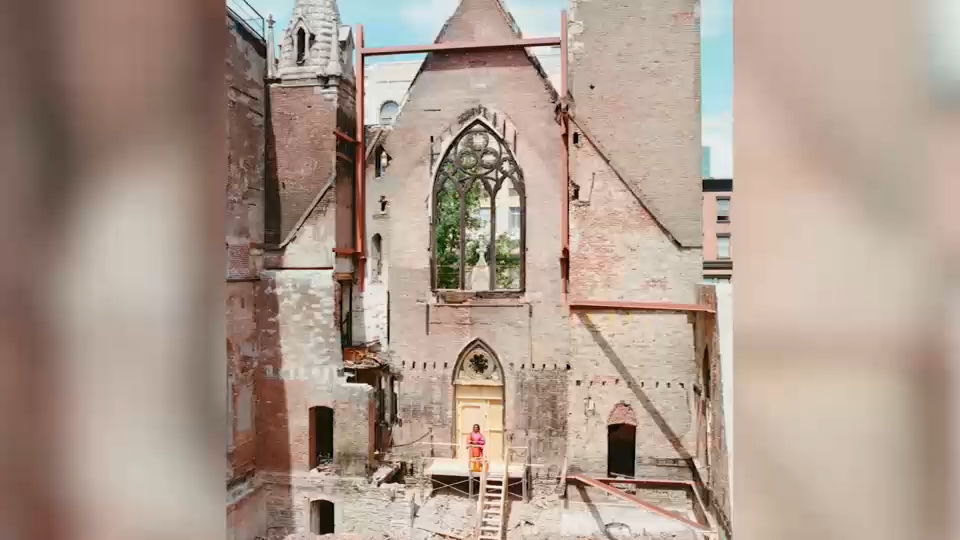Funeral held for FDNY chief Michael Fahy killed in Bronx explosion

YONKERS, New York (WABC) -- Thousands of mourners including firefighters and elected officials filled a Yonkers church to pay respects to FDNY battalion chief Michael Fahy, who was killed by debris from a house explosion this week.
Mayor Bill de Blasio, Fire Commissioner Daniel Nigro and Cardinal Timothy Dolan attended Fahy's funeral at Annunciation Church, in Yonkers.
The 17-year fire department veteran and father of three died Tuesday. He was directing operations from the street when he was struck by debris when the house in the Bronx exploded. Authorities say a tampered gas main may be to blame. They're looking into whether the building was used to grow marijuana.
Two people have been arrested in connection with the explosion.
Fahy was posthumously promoted on Thursday from battalion chief to deputy chief, the highest civil service promotional achievement in the FDNY.
Fahy's wake was Thursday and Friday at Flower Funeral Home in Yonkers.
"He was on the list to become Deputy Chief, it's something well-deserved," Nigro said. "I have no doubt that in a number of years, Chief Fahy would have led this department."
Fahy was originally assigned to Engine Company 35 in Harlem, where he worked for five years before transferring to Ladder 14, located in the same firehouse.
In 2004, he was promoted to Lieutenant and was assigned to Battalion 3 in the Bronx, before being assigned to Engine 83 in the South Bronx. Upon his promotion to Captain in 2007, he was transferred to Division 1 in lower Manhattan, where he worked in multiple fire companies. After being promoted to Battalion Chief, he first worked in Battalion 20 in the Bronx before transferring to Battalion 19.
Fahy is the 1,145th firefighter to die in the line of duty since the FDNY's founding in 1865. The last member of the Department to die on duty was Lieutenant Gordan Ambelas, of Ladder 119, on July 5, 2014.
"To lose Mike, it's like getting stabbed, you know what I mean," retired FDNY Captain Stephen Damato said. "You have this pain in your heart that just doesn't go away."
The Associated Press contributed to this report.










